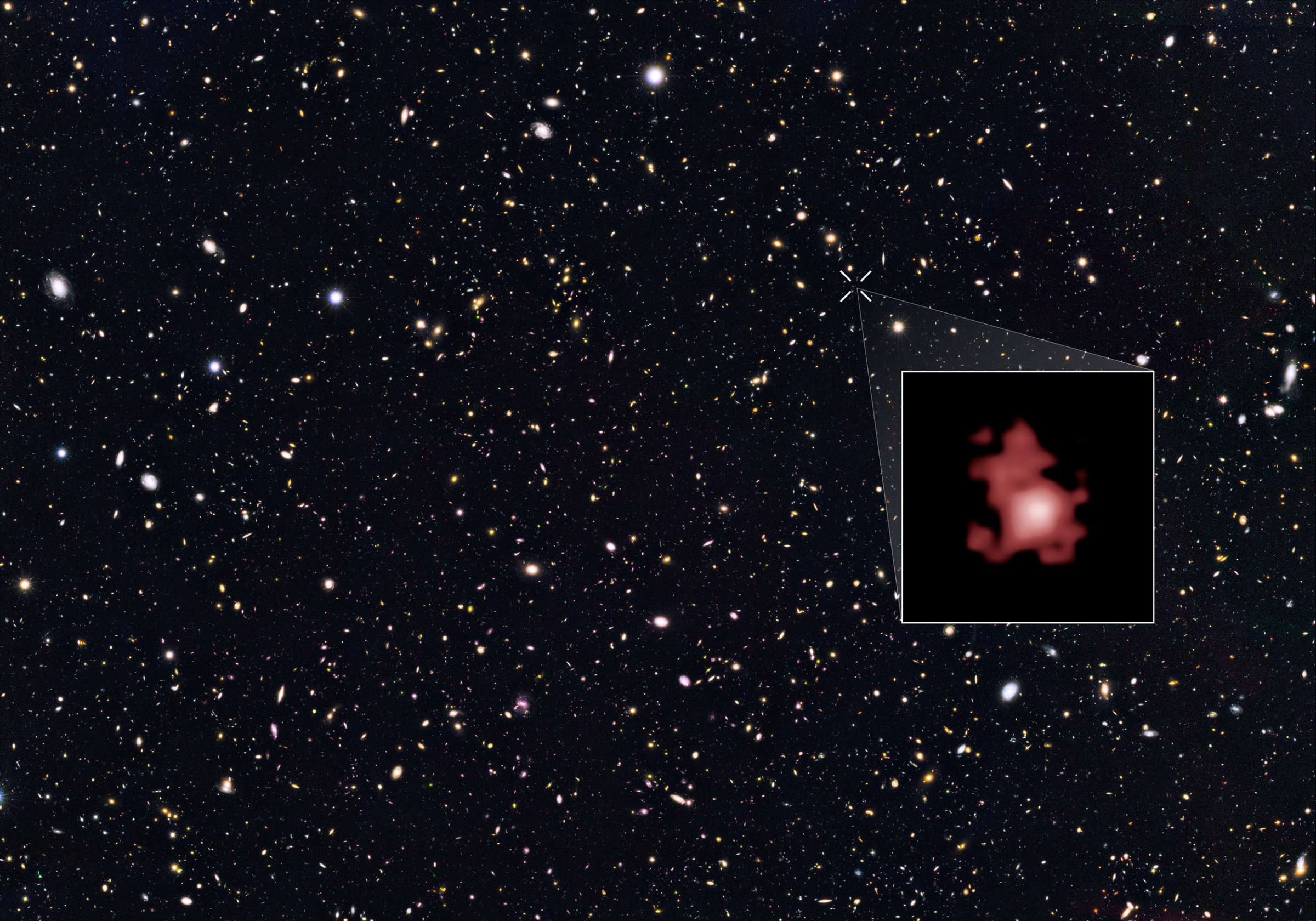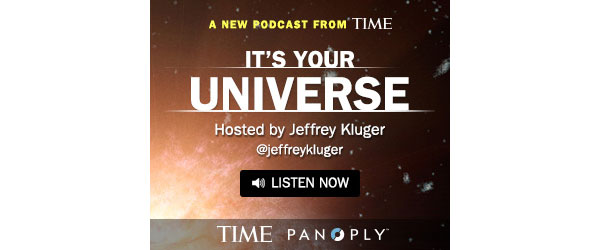
The Hubble Space Telescope has broken a cosmic record. Peering deep into the universe, it has measured the distance to a small, ancient galaxy, pegging its cosmic neighborhood at 13.4 billion light years away. The previous record was 13.2 billion, and that comparatively small difference matters. The more remote a galaxy is, the longer its light has been traveling to us. So the new signal comes from not only the most remote galaxy ever measured, but also the oldest.
Astronomers are calling the galaxy “GN-z11,” and noting that it’s extraordinarily bright given its distance from Earth. Its discovery “provides additional strong evidence that other unusually bright galaxies found in earlier Hubble images are really at extraordinary distances,” a press release reads. Since the universe as a whole is 13.8 billion years old, that means we’re closing in on some of the first galaxies ever formed.

The extreme age of GN-Z11 is easily the most remarkable thing about it—and indeed, in other respects it’s about as modest as a galaxy can get. It’s approximately 25 times smaller than the Milky Way and has 1% of its star mass. The galaxy is home to a rapidly growing number of stars, however, and forms them at a rate 20 times the rate at which stars are formed in the Milky Way. Of course, it’s best to describe everything about GN-Z11 in the past tense rather than the present: by peering 13.4 billion light years into the cosmic deep, Hubble also peered 13.4 billion years into the cosmic past. The galaxy is surely a very different place today—but just how different science can’t possibly know.
More Must-Reads From TIME
- The 100 Most Influential People of 2024
- How Far Trump Would Go
- Why Maternity Care Is Underpaid
- Scenes From Pro-Palestinian Encampments Across U.S. Universities
- Saving Seconds Is Better Than Hours
- Why Your Breakfast Should Start with a Vegetable
- Welcome to the Golden Age of Ryan Gosling
- Want Weekly Recs on What to Watch, Read, and More? Sign Up for Worth Your Time
Contact us at letters@time.com